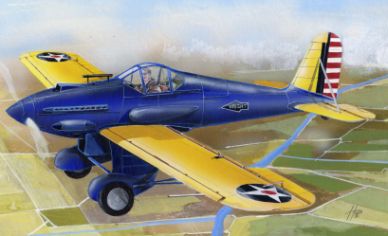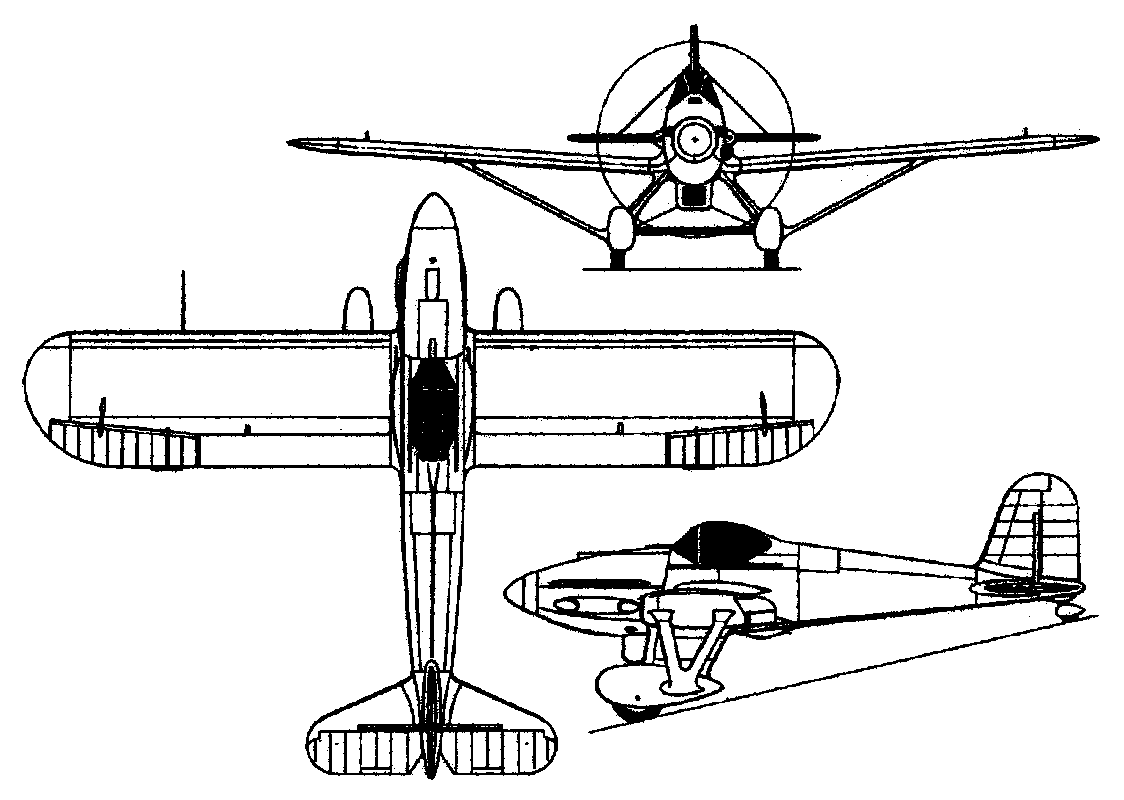As I'm sure you all know by now I have no idea on how to install mods.
because of this I am devoting myself to improving my favourite game through other means
allow me to introduce
The Curtiss XP-31

The Curtiss XP-31 Swift was Curtiss’s first monoplane fighter, but despite some advanced features it was a disappointing design and lost out to the Boeing P-26. Work on the Swift began in 1932, with the encouragement of the USAAC. The Air Corps wanted an interim fighter to replace its biplanes before more modern monoplanes could be developed, and was very much an interim design.
The new fighter was heavily based on the Curtiss A-8 Shrike. The A-8 was a two-seat low wing monoplane, with a fixed undercarriage in streamlined spats. Oddly it used externally wire-braced wings, a remarkably obsolete feature to include on an aircraft that made its maiden flight in June 1931.
The Swift was significantly smaller than the A-8 – wingspan was down by 8ft, length by 6ft. However its empty weight only fell by 600lb (compared to the YA-8). Loaded weight fell by a more significant 1,700lb, but the Swift would eventually use the same engine as the A-8 and would thus be under-powered for a fighter.
The Swift was also a low-wing monoplane, with a fixed undercarriage. The main wheels were partially covered, and the wire-bracing of the A-8 was replaced with a rather clunky looking under-wing spar that connected the bulky undercarriage to the mid-point of the wing. The wings were straight edged with circular ends, while the tail was a fairly standard unit. It was armed with four .30in machine guns, two above the nose and two in blisters on the side of the cockpit.
The Swift did have a number of modern features – it was the first US Army fighter to be designed with an enclosed cockpit (just arriving before the Boeing YP-29). It was of all metal construction, had trailing edge flaps on the wings and full-span retractable slots on the wing leading edge.
The Swift made its maiden flight in July 1932. At this stage its army designation was XP-934, as it was a privately owned aircraft being tested by the USAAC. It received the XP-31 designation after the Army purchased the aircraft on 1 March 1933.
When the Swift made its maiden flight it was powered by a 700hp Wright Cyclone radial engine. With this engine the aircraft was far slower than expected and by the end of August it had been re-engined to use the Curtiss V-1570 Conqueror inline engine. This greatly improved the aircraft’s lines, but although its top speed did increase it still wasn’t that impressive. The biplane P-6E could reach 193mph, the monoplane XP-31 Swift only 208mph.
The XP-31 was developed at the same time as the Boeing P-26. Work on the Boeing aircraft also began early in 1932 as a private venture, with the Army designation XP-936. The prototype XP-936 made its maiden flight on 10 January 1934, and had a top speed of over 230mph. It was a little less advanced than the Curtiss aircraft, with an open cockpit and external bracing wires under the wings. The success of the XP-936 was rewarded with a production contract as the Boeing P-26, issued just before the Army bought the XP-934 in March 1933.
The USAAC did get some use out of the XP-31. It was soon designated as obsolete (as the ZXP-31), but between 1932 and July 1936 it logged 287 flying hours. It was then moved to a Air Corps mechanics’ school for use on the ground.
Engine: Curtiss V-1570-53
Power: 600hp
Crew: 1
Span: 36ft 0in
Length: 26ft 3in
Height: 7ft 9in
Empty weight: 3,334lb
Gross weight: 4,143lb
Max speed: 208mph at sea level
Climb Rate: 2,130ft/ min
Range: 370 miles
Armament: Four .30in machine guns

the Game has progressed so far into the "what if" paper projects of the 40's, so why cant it have a few "what ifs" of the 30's, Finns supplementing their Fokker D.XXI's with these little XP-31s etc, china flying these against waves of japanese bombers escorted by Nakajima Ki-8s, Kawasaki Ki-5s, and Kawasaki Ki-28s, the potential is huge
if there are any problems feel free to contact me
fell free to comment
Good Luck